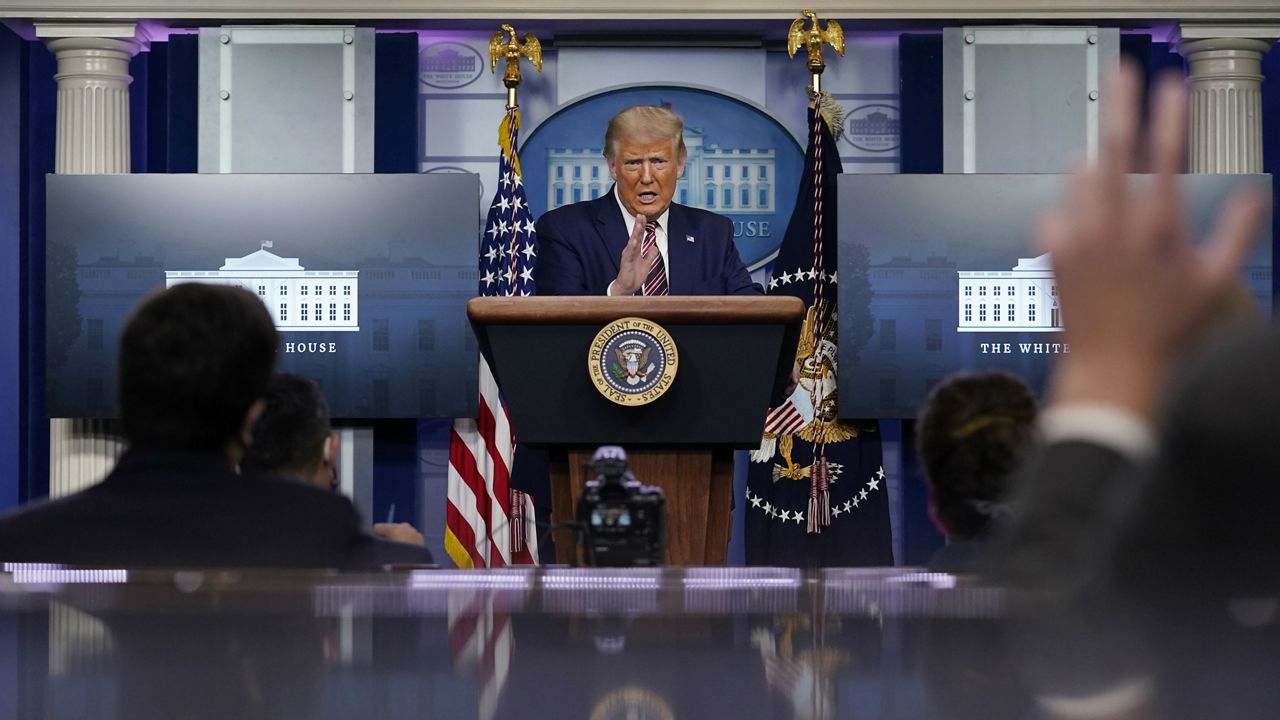DALLAS-FORT WORTH — The upcoming presidential election has been shrouded in threats of violence, regardless of the outcome. In a recent FOX News interview, President Trump confidently declared he would “put … down very quickly” riots on election night should aggrieved Democrats take to the streets in the wake of his potential victory.
Critics of Trump have grown increasingly leery that the president has yet to commit to a peaceful transfer of power should he lose. Trump and his allies have begun framing the stakes of November’s election in increasingly apocalyptic terms — and rejecting the idea that a Democrat could legitimately win. This strategy has many observers worried that a Biden win would likely result in violence.
Caught in the undertow of this dark rhetoric and the looming threat of election-night partisan clashes are local police forces all over the country. In North Texas, several local police spokespeople have said their respective high-ups are trying to strike a balance between being prepared for anything while avoiding the optics of a heavy police presence on Election Day.
In Arlington, Dallas, Fort Worth, and Weatherford — cities that have all experienced their share of protests — police forces are in the meeting and planning phases of their election night strategies. As of now, local police forces are either declining to commit to increasing their workforce or, in the case of the Dallas Police Department, not showing their hand.
Tim Ciesco, the media relations coordinator for APD, summed up how most North Texas cities are dealing with their election night patrol strategies.
“We have a tactical intelligence unit that's really good about monitoring any kind of threats or posts about any type of events that may take place,” he said. “If we think there could potentially be some type of issue as a result of some of those things, then they feed that information to our command team, and then they come up with plans of action to respond to that.
“As of today, I don't think we've been made aware of any type of anticipated threat or the possibility of violence, but it's certainly something that folks here monitor day in, day out, whether it's an election cycle or not.”
In Fort Worth, where frequent protests after the killing of George Floyd have been peaceful — save for one incident — a police spokesman said the department isn’t planning to add any patrols, but if the force’s special unit dedicated to monitoring social media, blogs, and other web chatter detects threats, they will have officers on call.
“We have officers who are constantly looking up for specific keywords in social media in all of these platforms,” said Officer Daniel Segura. “We have a unit that is normally looking at what's going on, what's trending, and who’s doing what, but we don't have anyone we’re specifically always watching. We just keep track of what's going on out there in the social media world.”
Weatherford has been a powder keg of racial tension after protests over a Confederate statue turned violent over the summer. Sergeant Matthew Chalmers said his department will also be monitoring the web for threats, but he doesn’t believe the past violence in his town has been caused by locals. He said the courthouse, where the controversial statue sits, is already under constant surveillance.
“We have our local groups and they have been good about letting us know, ‘Hey, we want to be down there at this date and this time,’ and we staff accordingly to ensure their safety and also the safety of anybody else that wants to go down there and counter protest.”
Like the others, Ciesco said Arlington is focused on his community and what people there are saying — not national pundits predicting doom.
“We’re certainly aware of the political climate now and how it's been kind of the last several years,” he said. “But has that greatly affected or changed the way that we plan or strategize our responses to any incidents? I don't know that I would say it has.”



